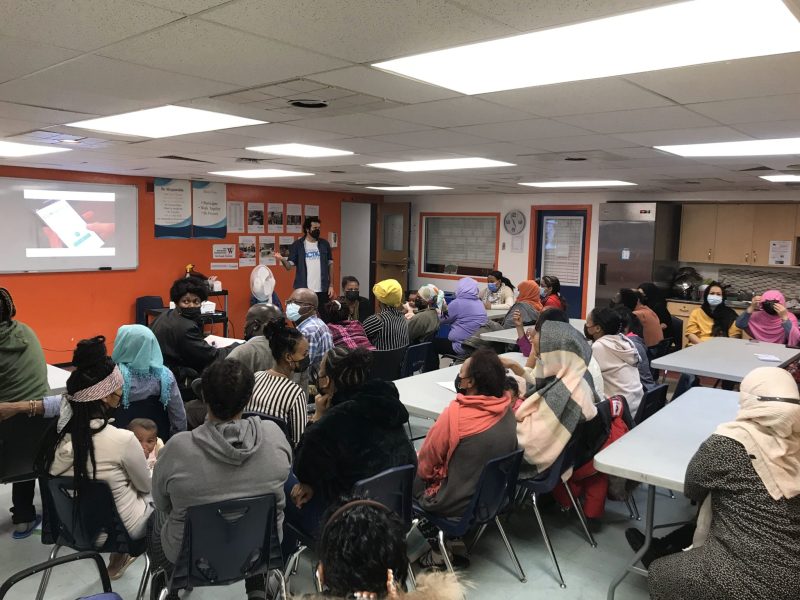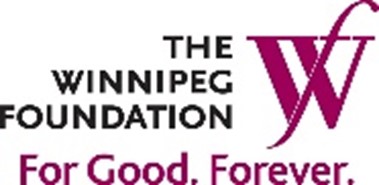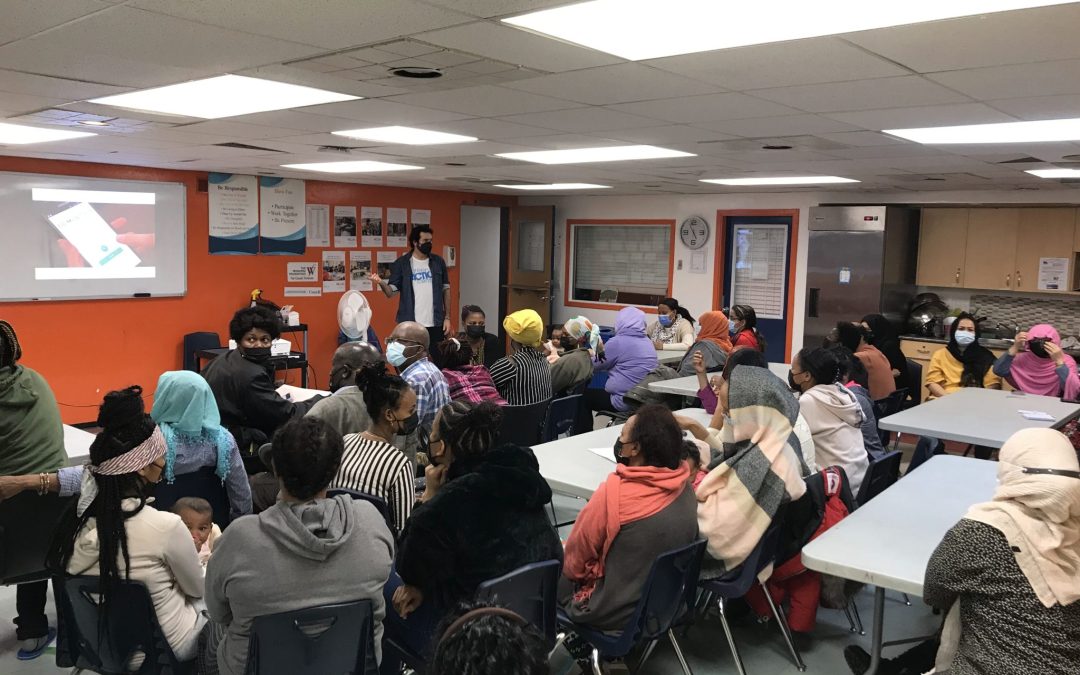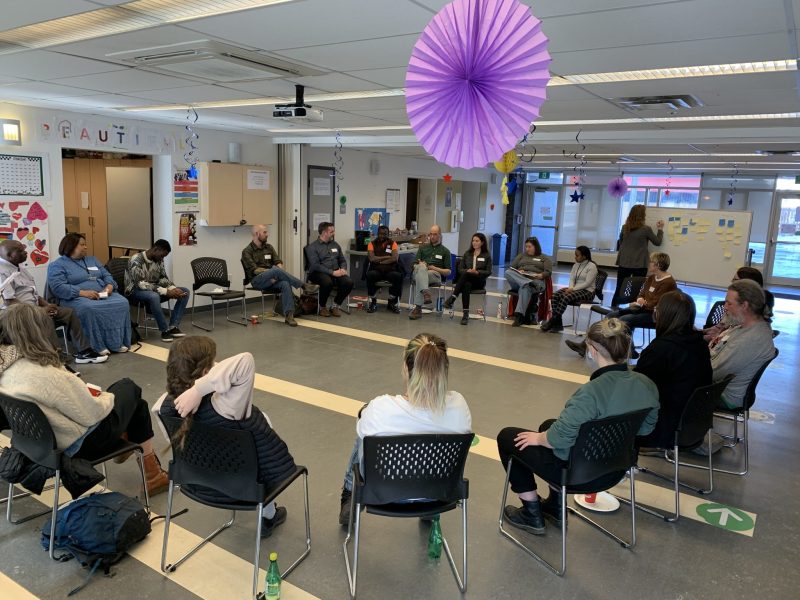Over the past year, Green Action Centre has developed a project in partnership with The Immigrant and Refugee Community Organization of Manitoba (IRCOM), funded by The Winnipeg Foundation and The Building Sustainable Communities (BSC) program from the Government of Manitoba. The project, called the ‘Sustainability Education and Skill Building for Newcomers Project’ had the objective to support a growing newcomer population in Winnipeg to live sustainably and reduce the impacts of climate change through the sharing of knowledge, tools, and skills that engage newcomers in climate action. The two pronged project looked at methods of waste reduction (WR) and active, sustainable, and affordable transportation (ST); reducing barriers by providing educational and skill-building opportunities for newcomers and the organizations that support people as they settle in Winnipeg. This helped build community engagement, skill sharing, and further advance environmental stewardship in the newcomer communities.
The project involved interactive workshops for IRCOM residents and discussion events for organizations working with newcomer and underserved communities.
Workshops
Residents at IRCOM were able to take part in seven (7) skill building workshops: four (4) related to sustainable transportation two (2) related to waste reduction, and one (1) workshop that summarized them all. In addition to the workshops, educational resources in printed format on the workshop topics were provided to the participants. Although the materials used graphics, text was translated in multiple languages to meet the needs of the participants. Apart from that, self delivery guides were provided to IRCOM to be able to run the workshops on their own for future newcomer families.

Sustainable Transportation
Walking and Biking in Winnipeg: This workshop looked at the benefits and barriers of biking and walking in Winnipeg and common types of bike infrastructure. Participants were able to identify what infrastructure they saw during their day-to-day travels and highlighted what the
city could improve upon. More information can be found here.
Finding your Walk, Bike, or Bus Route in Winnipeg: This workshop explained the different types of routes people can take when using active transportation. The safest route, the fastest route, and more scenic routes are different types of bike lanes. These routes can change depending on certain conditions: the time of day, the season, and current weather. Participants got to use bike maps to map their own routes they could take. More information can be found here.
Winter Wear: This workshop displayed all the proper gear one needs to get through Winnipeg winters. To some Winnipeggers this might seem like common sense, but for people who’ve never lived in a cold climate, this is new and important information! Participants learned about
different types of winter clothing, winter hazards like slipping on ice or frostbite, and general tips to stay warm. More information can be found here.
Commuting with the Community: This workshop promoted different ways of commuting in Winnipeg. The benefits of commuting in groups and disadvantages of commuting alone were talked about. Peg City Car Co-op – a 24/7 car sharing service to use a vehicle only when you
need it, and GO Manitoba – an app to connect with others travelling on the same route as you, were introduced to participants as alternative ways to commute in Winnipeg. More information can be found here.


Waste Reduction
What Goes Where?: This workshop discussed the importance of recycling, the kind of waste infrastructure seen in Winnipeg, and which items are recyclable or belong in the garbage. Participants were tested on what they learned with an interactive quiz, asking what waste items go in which bin. More information can be found here.
Reduce and Reuse your Waste: This workshop showed different ways that clothing, common household items, and packaging can be reduced and reused. At the end of the workshop, participants were given a goodie bag with reusable items such as produce bags and metal straws. More information can be found here.
Events
In addition to the seven workshops, two events were hosted at IRCOM: one on sustainable transportation and one on waste reduction. While the workshops were held for IRCOM residents, the events were held for newcomer serving organizations and underserved community serving organizations. Representatives from such organizations were invited, gathered together in one space, and discussed problems and solutions that the communities they serve face.
Transportation Equity Discussion
The sustainable transportation event, the ‘Transportation Equity Discussion’ covered how underserved communities in Winnipeg experience transportation inequity. Representatives from newcomer and underserved community serving organizations and city representatives had an open discussion on solutions to barriers, new ways to collaborate together, and learn about initiatives currently in place to address transportation inequities.
Food Waste among Newcomers and Underserved Communities in Winnipeg Event
The waste reduction event, the ‘Food Waste among Newcomers and Underserved Communities in Winnipeg Event’ covered food waste in newcomer and underserved communities. Representatives from various newcomer serving organizations, underserved community serving organizations, and organizations that work with food were invited. Barriers, solutions, and opportunities for connection were covered during a panelist discussion and an open discussion.
The Sustainability Education and Skill Building for Newcomers project was very successful, with high praise coming from IRCOM’s staff and residents. Immigration is a hard transition, and helping newcomers settle into their new lives is something we at Green Action Centre take pride in. Winnipeg is a diverse city, so we call upon other Winnipeggers to do their best to welcome newcomers!
Project funded by
![]() Building Sustainable Communities Program
Building Sustainable Communities Program







Kudos to this valuable learning opportunity for our new comers. All households need to be taking action to reduce waste.